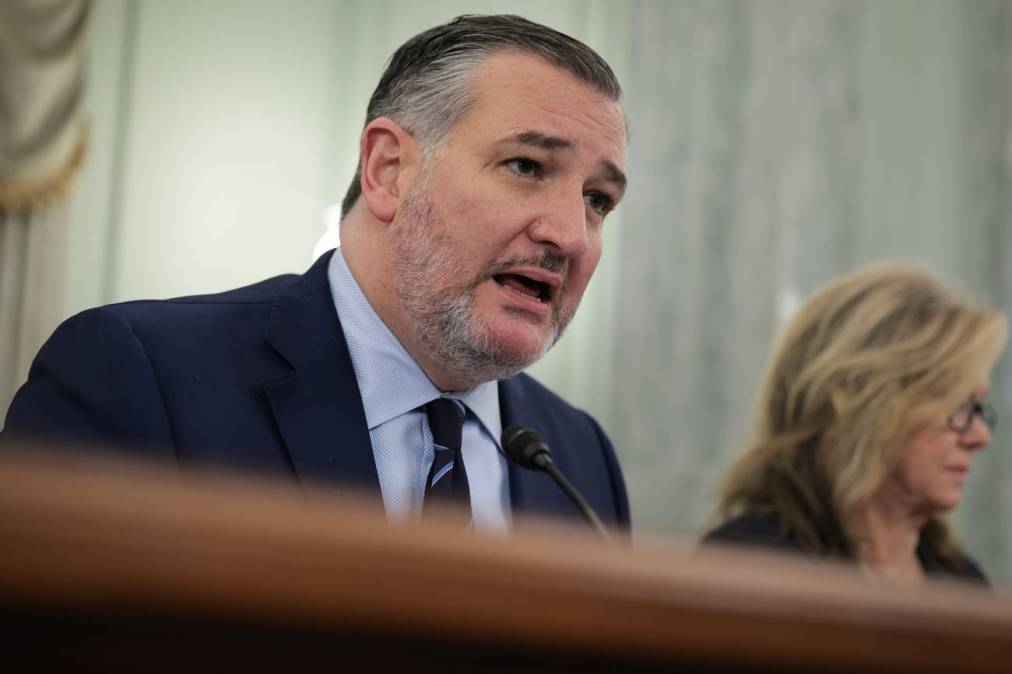Senate kills off proposed moratorium on state AI law enforcement

The Senate on Tuesday voted 99-1 to remove from the budget bill a proposed moratorium on states enforcing their own artificial intelligence laws.
The amendment’s passage is being widely hailed by state legislatures and advocacy groups as a win for the autonomy of states, which have over the last several years drafted hundreds of bills attempting to mitigate AI’s myriad deleterious effects in the arenas of privacy, health care, elections, education and the workforce.
Eric Null, co-director of the Privacy and Data Project at the Washington think tank Center for Democracy and Technology, called the overwhelming vote a “big victory.”
“We didn’t want Congress to be dictating what states can do in terms of protecting their constituents from harms that come about from AI systems and we think that would have been a pretty major issue for states,” Null said.
The amendment passed in spite of sustained efforts in recent weeks from a small cohort of Senate Republicans led by Ted Cruz, the lawmaker from Texas who chairs the Commerce Committee. Cruz has claimed that allowing states to continue regulating AI, each in their own fashion, would impede market growth.
Daniel Castro, director of the Center for Data Innovation, a division of the Washington think tank Information Technology and Innovation Foundation, was among those disappointed by Tuesday’s vote.
“The United States is in a global race with countries like China, which are pursuing coordinated national strategies to dominate AI,” Castro said in an emailed statement. “For America to compete and win, it must harness its talent, data, and innovation—not shackle its AI companies with a patchwork of conflicting state regulations.”
The moratorium’s removal follows numerous revisions in recent weeks, including Cruz attempting to make compliance a requisite for states to receive their funding allotments from the $42 billion Broadband Equity, Access, and Deployment program. When the Senate parliamentarian asked Cruz to rewrite the language last week, he did so, and instead dangled before states access to a new $500 million pot of Commerce funds.
When that version failed to gain traction, Cruz began negotiating over the weekend with Sen. Marsha Blackburn, R-Tenn., to preserve the moratorium, but scale it back. They appeared to be closing in on a version that cut the original 10-year ban on state enforcement down to five years, and included some exceptions, such as for laws that protect children online and those designed to protect individuals’ names, images and likenesses.
But Blackburn on Monday pulled her support altogether, signaling a growing skepticism inside the GOP. When asked by Politico, Blackburn didn’t explain why the deal fell apart, leaving only her public statement, which referenced a need to protect the public from potential AI abuses.
“While I appreciate Chairman Cruz’s efforts to find acceptable language that allows states to protect their citizens from the abuses of AI, the current language is not acceptable to those who need these protections the most,” Blackburn said in a statement Tuesday. “This provision could allow Big Tech to continue to exploit kids, creators, and conservatives. Until Congress passes federally preemptive legislation like the Kids Online Safety Act and an online privacy framework, we can’t block states from making laws that protect their citizens.”
Commerce Sec. Howard Lutnick posted on X last week that eliminating state AI laws was a matter of national security, a measure “required to stay ahead of our adversaries and keep America at the forefront of AI.”
“By creating a single national standard for AI, the bill ends the chaos of 50 different state laws and makes sure American companies can develop cutting-edge tech for our military, infrastructure, and critical industries–without interference from anti-innovation politicians,” Lutnick wrote.
Cruz’s moratorium was marketed as a necessary step to clear the way for a national AI framework, but none has been created. Null, with the Center for Democracy and Technology, said he might support a version of the moratorium that lined up a federal framework to replace states’ efforts, but that eliminating all governance with only the promise of future congressional action was “completely unreasonable.”
“If we had had a good, substantive federal standard that involved stakeholder engagement and had gone through a similar process that the privacy bills did, then perhaps there could have been a role for preempting what some of the states were doing,” Null said. “But without that I think we would just be kneecapping the states to protect their own constituents against AI harms, and I think that was inappropriate.”
Meredith Ward, deputy executive director of the National Association of State Chief Information Officers, called the vote “a big win for the states and citizens they serve.”
“The provision would have negatively impacted CIOs’ efforts to deliver services to their citizens and ensure responsible data protections,” she wrote in an emailed statement. “NASCIO thanks the coalition of organizations and advocacy groups that opposed this language.”
Pushback to the moratorium was immediate after it was proposed last May. A group of more than 260 state legislators representing 50 states last month argued that the language would have removed critical guardrails currently protecting the public from AI detrimentums ranging from deepfake scams to algorithmic discrimination. In another letter, a group of 40 state attorneys general called the proposal “irresponsible” and “wholly destructive of reasonable state efforts to prevent known harms associated with AI.”
But despite the proposal’s slide into unpopularity — (Sen. Thom Tillis, a moderate Republican from North Carolina who has opposed the budget’s deep cuts to Medicaid and announced over the weekend he would not seek reelection, was the sole holdout on Tuesday’s vote) — Null said states should be vigilant, looking out not only for creative new abuses powered by AI, but for eventual movement in Washington.
“I think states should pay attention to what Congress is doing, at least in this respect,” Null said, “because I suspect we will see this language again.”






